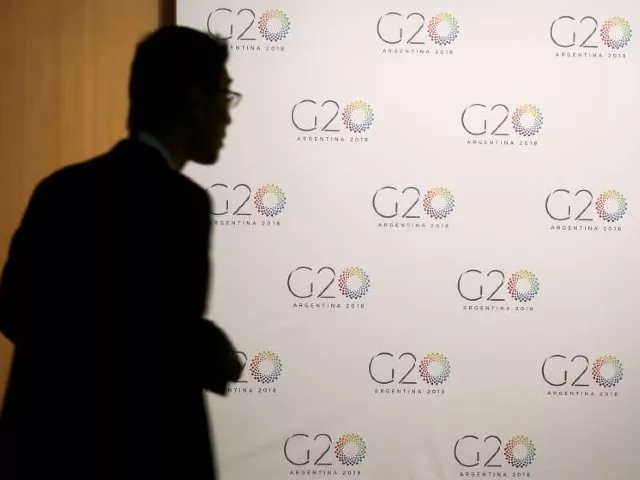G-20 vows to do 'whatever it takes' to support global economy
Major economies agreed in principle for the first time on a 'Common Framework'
BERLIN/ BRUSSELS/ WASHINGTON:Financial leaders from the Group of 20 major economies on Wednesday underscored the urgent need to bring the spread of the coronavirus pandemic under control, and vowed to “do whatever it takes” to support the global economy and financial stability.
In a lengthy communique, G-20 finance ministers and central bank governors also agreed in principle for the first time on a “Common Framework” to deal on a case-by-case basis with the rising number of low-income countries facing debt distress.
That marks a significant step forward for China, which has become a major creditor to poor countries in recent years, but had baulked at the prospect of writing off any debts, according to sources familiar with the G-20 deliberations.
The final draft of the communique, viewed by Reuters on Wednesday during the annual meetings of the International Monetary Fund and World Bank, said the officials would finalize the new framework at an extraordinary meeting before G-20 leaders meet next month. An earlier draft had the ministers adopting the framework, but officials were unable to reach agreement on that step this week.
G-20 officials also agreed to extend a freeze in official bilateral debt payments by six months, given continued liquidity pressure on low-income countries, and expressed disappointment about the absence of private-sector creditors in the moratorium.
World Bank President David Malpass told G-20 officials it was critical to look beyond the G-20’s Debt Service Suspension Initiative, which only defers payments but doesn’t reduce them.
He said the urgency of the crisis - which threatens to leave 150 million more people in extreme poverty by 2021 - required more forceful and quicker action on debt reduction for the most indebted of the world’s poorest countries.
“The recession in advanced economies is less severe than had been feared, but in most developing economies, it has become a depression, especially for the poorest,” he said.
“It’s urgent to make rapid progress on a framework because the risk of disorderly defaults is rising,” he said.
G-20 leaders, recognizing the uneven and highly uncertain outlook for the global economy, also pledged to continue to address the disproportionate impact the crisis has had on women, young people and other vulnerable segments of society.
IMF Managing Director Kristalina Georgieva told a news conference that more international cooperation was needed to work on a vaccine, and early progress could boost global income by $9 trillion by 2025.
“Nine months into the pandemic, we are still struggling with the darkness of a crisis that has taken more than a million lives, and driven the economy into reverse, causing sharply higher unemployment, rising poverty, and the risk of ‘a lost generation’ in low-income countries,” she said.
“A durable economic recovery is only possible if we beat the pandemic everywhere,” she said.
The IMF projects a partial and uneven recovery in 2021, with global growth expected to reach 5.2%, but has warned that significant risks remain, including the resurgence of the virus.


COMMENTS
Comments are moderated and generally will be posted if they are on-topic and not abusive.
For more information, please see our Comments FAQ